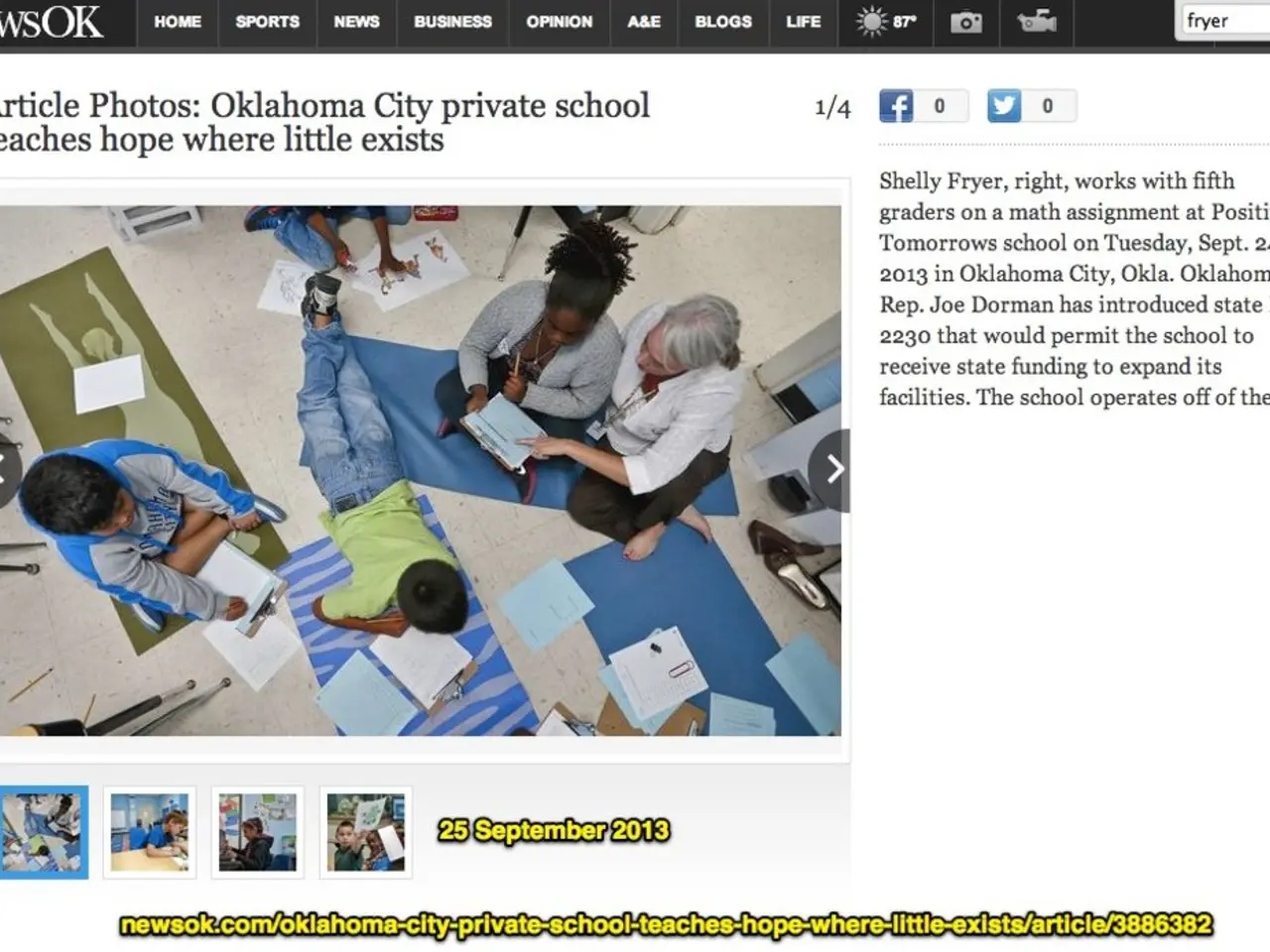Influence of Digital Networks on University Students' Experiences
In the modern world, social media has become an integral part of young people's lives, influencing various aspects of their development, from academic performance to mental health and social interactions. While it offers numerous opportunities for learning, connection, and entertainment, excessive or unproductive use can have detrimental effects.
Academically, excessive social media and mobile phone use has been linked to poorer academic outcomes, including lower test scores and less involvement in academic pursuits. Distractions from social media reduce focus and study coordination, worsening academic success. However, when mobile phones are used productively, such as accessing educational materials or completing group assignments, there is a slight positive impact on academic engagement and psychological well-being.
Mental health is another area where social media's influence is profound. It can lead to increased anxiety, depression, and feelings of isolation among children and teens due to exposure to idealized images, cyberbullying, and social comparison. The pressure to maintain a perfect online persona and the constant need for validation through likes and comments exacerbate self-esteem issues and emotional stress. Social media addiction and digital fatigue disrupt sleep patterns, further harming mental health.
Social interactions are also reshaped by social media. Although it offers platforms for connection, it diminishes face-to-face social skills by reducing time spent with peers in real life, hindering the development of crucial interpersonal abilities like reading emotional cues and body language. Overreliance on digital communication can increase social anxiety and feelings of isolation despite apparent online connections.
Time devoted to social media often displaces participation in face-to-face social and extracurricular activities, weakening peer relationships and physical health. Reducing social media use through detox programs has shown improvements in academic focus, peer relationships, and reduced anxiety, implying that extracurricular engagement benefits from less digital distraction.
The intertwining of online and offline selves necessitates a nuanced understanding of how virtual interactions affect self-esteem, body image, and personal development. Open discussions between students, parents, and educators about the benefits and challenges of social media can foster understanding and support.
Experts suggest setting boundaries and using social media as a tool for academic enrichment rather than a source of distraction. Social media platforms, such as Facebook, Twitter, Instagram, and Snapchat, offer opportunities for learning, connection, and entertainment, but also present challenges and risks.
The psychological effects of social media on students are profound, with potential contributions to anxiety, depression, and feelings of inadequacy stemming from comparison, cyberbullying, and the pressure to maintain a certain online image. Social media platforms can influence students' understanding of global issues, political movements, and social justice, encouraging participation and civic engagement.
The educational community needs to work together to guide students in navigating the digital world, ensuring that social media serves as a tool for positive growth and development. Balancing online interactions with offline activities, encouraging students to participate in sports, arts, and social events that contribute to their personal and social development, is crucial.
Setting clear boundaries for social media use can help minimize distractions and prioritize academic and personal commitments. Schools and families should provide resources for students struggling with social media-related issues, including counseling and mental health support.
Social media significantly influences how students interact with peers, offering platforms for connection but also leading to isolation, cyberbullying, and distorted perceptions of social norms and relationships. Case studies highlight both positive and negative outcomes, with educators successfully integrating social media into teaching methodologies and instances of social media distractions leading to decreased concentration and academic performance.
Social media can be a battleground for misinformation, polarizing debates, and the spread of unverified information, challenging students' critical thinking and discernment skills. Social media's influence affects the dynamics of group interactions and community engagement, having the power to unite students with common interests, yet also fostering exclusion and divisiveness.
Social media can be a double-edged sword in the context of extracurricular activities, providing opportunities for students to explore interests and engage in community initiatives but also contributing to a sedentary lifestyle. Encouraging positive online behavior, promoting digital literacy, and fostering environments where students can share their experiences and concerns about social media are vital steps in nurturing healthy social interactions.
Excessive social media use can exacerbate mental health issues such as stress and social anxiety in students. Educating students about the responsible use of social media, including privacy settings, online etiquette, and the importance of critical thinking online, is crucial.
In summary, social media's impact on students is complex, with predominant negative effects on academic performance and mental health when used excessively or unproductively. However, moderate and purposeful use can support learning. Managing screen time and promoting balanced use are crucial to mitigating harms and enhancing students' overall well-being and development.
- Integrating social media into academic pursuits, such as accessing educational materials or completing group assignments, can have a slight positive impact on academic engagement and psychological well-being.
- The pressure to maintain a perfect online persona and the constant need for validation through likes and comments can exacerbate self-esteem issues and emotional stress, leading to increased anxiety, depression, and feelings of isolation among students.
- Social media can influence students' understanding of global issues, political movements, and social justice, encouraging participation and civic engagement.
- Encouraging students to participate in sports, arts, and social events contributes to personal and social development, as it reduces time spent on social media and strengthens peer relationships.




